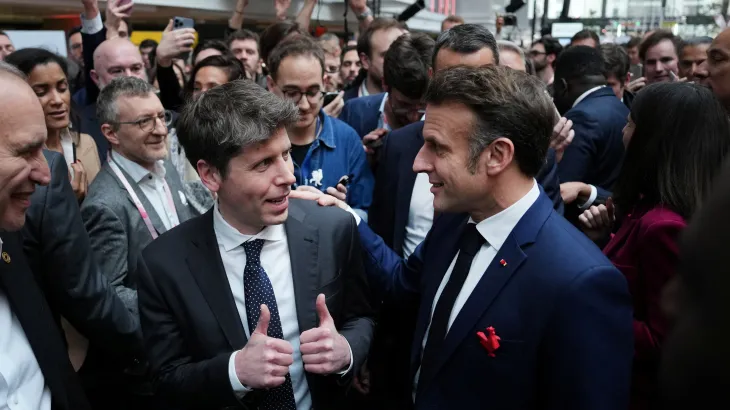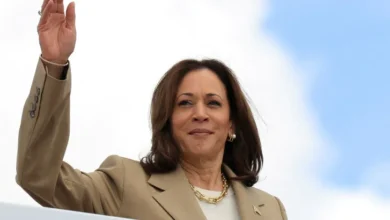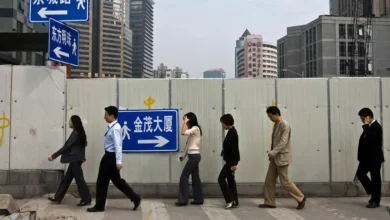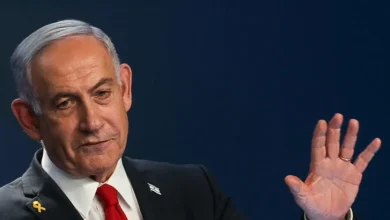Paris AI summit: Why won’t US, UK sign global artificial intelligence pact?

The United States and United Kingdom have refused to sign an Artificial Intelligence Action Summit declaration calling for policies “ensuring AI is open, inclusive, transparent, ethical, safe, secure and trustworthy”.
The summit in Paris on Monday and Tuesday brought together representatives from more than 100 countries to discuss how to reach a consensus on guiding the development of AI.
“We are still in the early days, and I already believe AI will be the most profound shift of our lifetimes,” Google CEO Sundar Pichai told the summit.
The meeting, which was held amid a three-way race for AI dominance, revealed a divide in the priorities of some nations.
While Europe is seeking to regulate and invest, China is focused on expanding access through state-backed tech giants, and the US is pushing for a hands-off approach in terms of regulation.
Here’s what you need to know about the summit and the AI race:
What was discussed at the AI summit?
Some leaders at the summit emphasised the need for the creation of a diverse and inclusive AI “ecosystem” that is human rights-based, ethical, safe and trustworthy. Others voiced concerns that overregulation of the industry could stifle innovation and development of the technology.
The summit also underscored the importance of bridging digital divides and supporting developing countries in AI development to reduce inequalities and ensure broader access to AI benefits.
On day one, French President Emmanuel Macron, who co-hosted the summit with Indian Prime Minister Narendra Modi, called the summit a “wake-up call for European strategy” as the continent has fallen behind in the AI development race.
After speeches and meetings by global leaders, the two-day summit concluded with a declaration outlining the fundamental ground rules for AI development that countries would adhere to.
What did the summit declaration say?
The countries that attended were asked to sign a Pledge for a Trustworthy AI in the World of Work, a nonbinding declaration.
The declaration outlined six main priorities:
- Promoting AI accessibility to reduce digital divides
- Ensuring AI is open, inclusive, transparent, ethical, safe, secure and trustworthy, taking into account international frameworks for all
- Making AI innovation thrive by enabling conditions for its development and avoiding market concentration driving industrial recovery and development
- Encouraging AI deployment that positively shapes the future of work and labour markets and delivers opportunity for sustainable growth
- Making AI sustainable for people and the planet
- Reinforcing international cooperation to promote coordination in international governance
Who signed the pledge and who did not?
Sixty countries signed the declaration, including Canada, China, France and India.
Why were the US and UK opposed to the pact?
The US did not provide an official explanation for not signing.
However, in his speech at the summit, US Vice President JD Vance emphasised the administration’s concerns about excessive regulation stifling innovation in the AI sector.
He warned that stringent regulations could “kill a transformative industry” and criticised European regulatory frameworks for imposing “massive regulations” and creating “endless legal compliance costs” for companies.
Vance also expressed concerns that certain content moderation efforts could lead to “authoritarian censorship”.
As for the UK, a spokesperson for Prime Minister Keir Starmer said: “We felt that the declaration didn’t provide enough practical clarity on global governance and [didn’t] sufficiently address harder questions around national security and the challenge that AI poses to it.”
“Security remains a vital part of AI’s future, and we look forward to continuing discussions in this area.”










